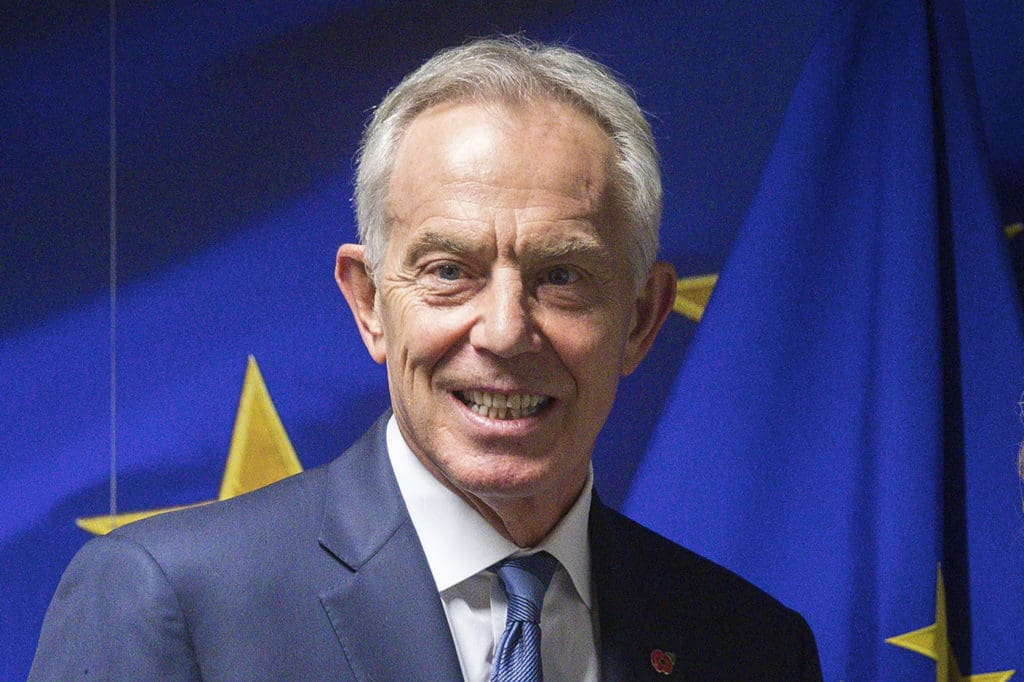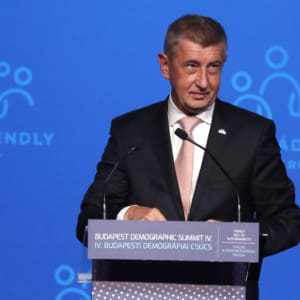Just when it seemed that the Pegasus spy-software story that erupted in July this year had subsided, another of its kind arises timed to perfection to coincide with parliamentary elections in a country led by an anti-migration, conservative-thinking prime minister.
Despite the promising signs that journalists worldwide are doing what they are supposed to do, that is, unmasking the corrupt dealings of politicians and world leaders, instead the entire effort bears the marks of hybrid information warfare directed by an international consortium of left-wing journalists, and financed by one well-known US billionaire oligarch.
This time the scandal is named “Pandora Papers” and it is supposed to have uncovered a world-wide tax avoidance scandal with hundreds of politicians and well-known businessmen involved. The hallmarks of the Pandora scandal are not dissimilar to the previous Pegasus story, in which an Israeli-made spy software was supposed to have been detected on the phones of journalists and NGO activists, incidentally almost all of them active on the left side of the political spectrum.

In Europe, the story broke with allegations and insinuations against Prime Minister Viktor Orbán’s government, and although the Hungarian security services have flatly rejected that — unlike their German counterpart — they would use this software for surveillance, and no evidence was presented to prove otherwise, since the spy software was allegedly detected on the phone of a Hungarian opposition journalist, the world media had promptly plastered its front pages with the photos of Viktor Orbán and associated the surveillance with his name.
The issue had again resurfaced on Monday during the press conference of the European Parliament’s Committee on Civil Liberties, Justice and Home Affairs (LIBE) after their two-day fact-finding visit to Hungary, where far-left Hungarian opposition MP Anna Donáth had again complained that she did not receive any answers regarding the Pegasus affair from Hungarian government representatives.
Now, the Pandora papers allege that current and former world leaders are hiding their wealth in tax havens abroad and investing in luxury property to avoid paying taxes in their home countries. Among those accused are King Abdullah II of Jordan, Azerbaijan’s leader Ilham Aliyev, some “confidants” of president Vladimir Putin, former UK Prime Minister Tony Blair, and former director of the International Monetary Fund Dominique Strauss-Kahn. From currently serving European heads of states, Ukrainian president Volodymyr Zelensky was mentioned as involved in a tax avoidance scheme, but more crucially, Czech Prime Minister Andrej Babiš was listed as one who in 2009 had invested in property abroad through some offshore accounts.

So why did an international consortium of left-wing journalists sponsored by the Open Society Foundations (OSF) publish a story one week before the Czech parliamentary elections in which an anti-migration conservative-thinking politician is leading the polls, one might ask. Indeed, the investigation into tax avoidance practices was coordinated by the International Consortium of Investigative Journalists (ICIJ) based in Washington that is generously sponsored by the Open Society Foundations, and published in Czechia on the news portal investigace.cz, that lists the Open Society Foundation among its main donors. In Hungary, the Pandora story broke on the Telex news portal that was the main platform for the original Pegasus story, again sponsored by Soros’ Open Society Foundation.
The Pandora Papers story has turned up mostly empty as far as the anti-Orbán domestic audience is concerned; they could only find a few businessmen on the list who are allegedly closed to other businessmen, who in turn are also allegedly close to the Hungarian prime minister.
To maintain the appearance of objectivity, the ICIJ media consortium had thrown a few retired left-wing politicians under the bus such as Blair or Strauss-Kahn, but both are already damaged goods as far as the current progressive global elite is concerned. Blair through his involvement in the Iraq war and his recent criticism of Islam, and the former socialist leader Strauss-Kahn with his corruption and sexual misconduct allegations. Involving their names in the investigation will not harm the Open Society Foundation’s agenda, and on the surface it will add credibility to the investigation.
The Czech news portal investigace.cz had denied that the release of the allegation against Andrej Babis had anything to do with the coming elections and that all 600 journalists involved had to agree on the release date. Yet, it is apparent that the main target of the leaks, in other words, the one who has the most to lose as a consequence of these allegations is Andrej Babiš.
It simply is not credible that only days before the Czech elections an international media consortium held together by Soros money and the American oligarch’s political vision, would be unaware of the fact that such revelations would directly impact the election results in Czechia.
It is no coincidence either that the newspapers involved in Pandora have run their stories with Babiš’ photo highlighted in the front pages. The Danish newspaper Jyllands Posten had even run the story with an image of Babiš and Orbán standing side-by-side, in order to associate conservative politics in general with allegations of corruption and tax avoidance even though Orbán has nothing to do with the story.
These tactics of hybrid warfare are used ever more frequently, usually on a smaller scale, but occasionally, as in the cases of Pegasus and Pandora, the full scale of the network is revealed. The coordination of over 600 journalists and the largest, most influential media networks all tied to one OSF sponsored consortium could mean a powerful weapon against global corruption and crime, but can just as easily be turned into a weapon that can severely distort the democratic process in countries not aligned with the political goals of those controlling these vital sources of information.






